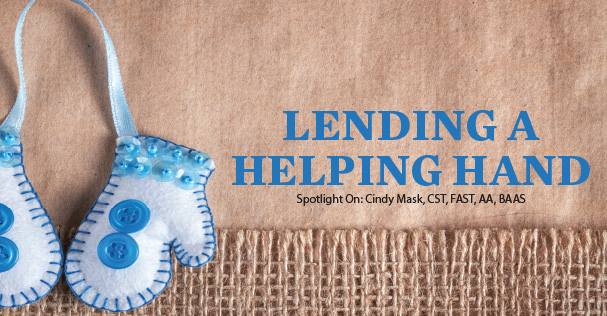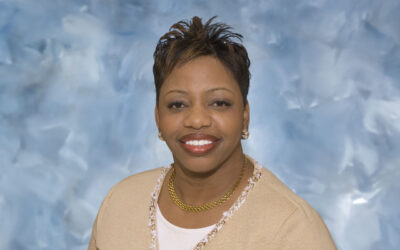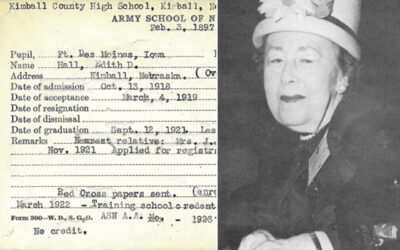By Matthew N. Skoufalos
“There’s still no substitute for a sterile working environment and a surgical conscience” – Cindy Mask, CST, FAST, AA, BAAS
 In 1983, when certified surgical technologist Cindy Mask began working in the operating room, every patient that presented with complaints of pain was a candidate for exploratory surgery. Such practices were a product of the technological limitations of the day, but they also contributed to an increased risk of exposure to infection, physician error and other unintended consequences.
In 1983, when certified surgical technologist Cindy Mask began working in the operating room, every patient that presented with complaints of pain was a candidate for exploratory surgery. Such practices were a product of the technological limitations of the day, but they also contributed to an increased risk of exposure to infection, physician error and other unintended consequences.
In the years since, the adoption of technological advancements in medical imaging and robotic-assisted and minimally invasive surgeries has addressed many of those concerns, but there’s still no substitute for a sterile working environment and a surgical conscience. Those are the hallmarks of professionalism in the OR, and the two biggest lessons that Mask, Clinical Coordinator of Surgical Technology at Tarrant County College in Ft. Worth, Texas, passes on to her charges.
“The role [of CST] is so important,” Mask said. “You treat my momma like you treat your momma. And you treat that person on the table as if they’re your family member.”
Gone are the days, Mask said, when the general surgeon in your local hospital — especially in less urban areas — would be the neighborhood physician who handled all the needs of the community. Today, in an environment of specialization (and sub-specialization), practitioners meet with a patient once, if at all, and it’s much easier for the human element of the process to be lost in the relentless caseload.
“Usually what happens is the surgeon literally walks in the room when you’re already draped, and he doesn’t even know who’s under that drape,” Mask said. “So you hope it’s the right part and you hope it’s the right patient, but that’s how mistakes are made. They just come in when everything’s already anesthetized and draped and they don’t even see you.”
“There is a disconnect,” she said. “Even for me, as a practitioner, it gets that way. You do the same kind of cases every day, you’re on call 40 hours a week, and it becomes like flipping burgers until you have that ‘a-ha’ moment, and something changes.”
She’s speaking in generalities, of course, but Mask came face-to-face with the vivid reality of that attitude when her father was an open-heart surgery patient in 2000.
“I knew how people acted and complained, and I wanted him treated like all those patients should be treated,” she said. “If you treat that patient like a family member, then you’re going to go that extra step. You should be treating that ten-o’clock-at-night patient the way you do at 6 a.m., or you need to get out of the profession. That’s how I feel, and that’s what I instill in my students.”

In Mask’s program, the principal burden for students is to understand and practice “impeccable sterile technique,” she said. According to Mask, CSTs who don’t know where their sterile boundaries are “don’t deserve to be in the operating room,” and students who fail to grasp the concept unceremoniously wash out of the program.
“You have to know incredible sterile technique or you could kill somebody,” she said plainly. “It’s imperative that you know that. Doctors are very demanding, which they should be. I want them to be demanding if they’re cutting me open.”
The 11-month accredited course is state-mandated in Texas, as well as in Indiana, New Jersey, Massachusetts, South Carolina, New York, Tennessee, Washington and Colorado. Only 80 percent of the students who begin Mask’s course complete it, she said. The only ways to fail are to mess up either of the two practicums in the program, or to demonstrate the absence of a surgical conscience. The lessons are severe, she said, but compromising on patient safety is out of the question.

“I coach it into them from day one when they sign their code of conduct,” Mask said. “You will be put out of the program if you make a mistake and don’t own up to it immediately. If you try to lie about something like, ‘I gave the patient the wrong medication,’ or ‘I didn’t want the doctor to be mad,’ then my job is damage control.”
“Everybody has a surgical conscience or you’re in the wrong profession,” Mask said. “Before the surgical technologist passes the scalpel to the surgeon, they do what’s called a time-out. ‘This is Mr. Jones, he’s having an arthroscopy; he had antibiotics at 10 a.m.’ If one person in that room has a little voice that doesn’t feel right, you speak up.”
 “Always do the right thing for the patient,” she said. That’s your mom or dad or your kid on the table. Always remember that.”
“Always do the right thing for the patient,” she said. That’s your mom or dad or your kid on the table. Always remember that.”
Fortunately, Mask said, she has never had to disqualify someone from the program on such grounds — which, from one perspective, indicates that her lessons are sticking. Her charges can be disciplined for making mistakes, and should expect to be. But, as Mask said, lying about a surgical mistake is a life and death error.
“If you lie about that, you’ll lie about anything,” she said. “You can’t live with yourself hurting a patient.”
Tenets like that are going into Mask’s upcoming, self-published book, “Do Not Go to the Operating Room Without This Book.” She intends the guide to be a handbook for laypeople who feel intimidated or confused by doctors’ orders, and has been collecting stories for months — mostly from friends of her parents who pepper her with queries when they discover she works in the healthcare field.
“You ask questions about everything you do in your life,” Mask said. “Why didn’t you ask your doctor? ‘Well, he didn’t have time for me.’ That’s what my book’s about. And it’s for family members.”
Coming from someone whose adage is “treat my momma like you would your momma,” it’s bound to be filled with practical perspectives — and worldly advice likely applicable beyond the scope of medicine.










